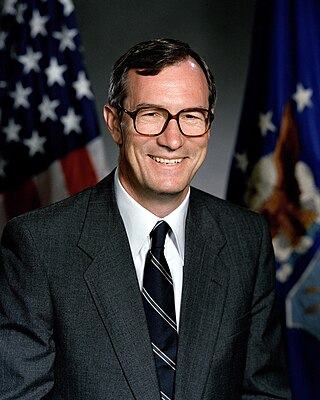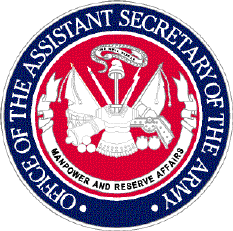Related Research Articles

Civil defense or civil protection is an effort to protect the citizens of a state from human-made and natural disasters. It uses the principles of emergency operations: prevention, mitigation, preparation, response, or emergency evacuation and recovery. Programs of this sort were initially discussed at least as early as the 1920s and were implemented in some countries during the 1930s as the threat of war and aerial bombardment grew. Civil-defense structures became widespread after authorities recognised the threats posed by nuclear weapons.

Total war is a type of warfare that includes any and all civilian-associated resources and infrastructure as legitimate military targets, mobilises all of the resources of society to fight the war, and gives priority to warfare over non-combatant needs.
The National Security Strategy (NSS) is a document prepared periodically by the executive branch of the United States that lists the national security concerns and how the administration plans to deal with them. The legal foundation for the document is spelled out in the Goldwater–Nichols Act. The document is purposely general in content, and its implementation relies on elaborating guidance provided in supporting documents such as the National Military Strategy.

The Joint Chiefs of Staff (JCS) is the body of the most senior uniformed leaders within the United States Department of Defense, which advises the president of the United States, the secretary of defense, the Homeland Security Council and the National Security Council on military matters. The composition of the Joint Chiefs of Staff is defined by statute and consists of a chairman (CJCS), a vice chairman (VJCS), the chiefs of the Army, Marine Corps, Navy, Air Force, Space Force, and the chief of the National Guard Bureau. Each of the individual service chiefs, outside their JCS obligations, works directly under the secretaries of their respective military departments, e.g. the secretary of the Army, the secretary of the Navy, and the secretary of the Air Force.

National security, or national defence, is the security and defence of a sovereign state, including its citizens, economy, and institutions, which is regarded as a duty of government. Originally conceived as protection against military attack, national security is widely understood to include also non-military dimensions, such as the security from terrorism, minimization of crime, economic security, energy security, environmental security, food security, and cyber-security. Similarly, national security risks include, in addition to the actions of other nation states, action by violent non-state actors, by narcotic cartels, organized crime, by multinational corporations, and also the effects of natural disasters.

Charles Erwin Wilson was an American engineer and businessman who served as United States Secretary of Defense from 1953 to 1957 under President Dwight D. Eisenhower. Known as "Engine Charlie", he was previously the president and chief executive officer of General Motors. In the wake of the Korean War, he cut the defense budget significantly.

James Rodney Schlesinger was an American economist and public servant who was best known for serving as Secretary of Defense from 1973 to 1975 under Presidents Richard Nixon and Gerald Ford. Prior to becoming Secretary of Defense, he served as Chair of the Atomic Energy Commission (AEC) from 1971 to 1973, and as CIA Director for a few months in 1973. He became America's first Secretary of Energy under Jimmy Carter in 1977, serving until 1979.

The War Production Board (WPB) was an agency of the United States government that supervised war production during World War II. President Franklin D. Roosevelt established it in January 1942, with Executive Order 9024. The WPB replaced the Supply Priorities and Allocations Board and the Office of Production Management.

The War Manpower Commission was a World War II agency of the United States Government charged with planning to balance the labor needs of agriculture, industry and the armed forces.

The Dwight D. Eisenhower School for National Security and Resource Strategy, formerly known as the Industrial College of the Armed Forces (ICAF), is a part of the National Defense University. It was renamed on September 6, 2012, in honor of Dwight D. Eisenhower who graduated from this school when it was previously known as the Army Industrial College.

The ROA is a professional association of commissioned officers, non-commissioned officers, former officers, enlisted and spouses of the uniformed services of the United States, primarily with the Reserve and National Guard.
The Council of Labor and Defense, first established as the Council of Workers' and Peasants' Defense in November 1918, was an agency responsible for the central management of the economy and production of military materiel in the Russian Socialist Federative Soviet Republic and later in the Soviet Union. During the Russian Civil War of 1917-1922 the council served as an emergency "national economic cabinet", issuing emergency decrees in an effort to sustain industrial production for the Red Army amidst economic collapse. In 1920–23 it existed on the rights of the commission of the Russian Sovnarkom and after 1923 of the Soviet Council of People's Commissariats. The Central Executive Committee of the Soviet Union abolished the council on 28 April 1937. Its functions were split between the Economic Council of the Council of People's Commissars of the Soviet Union and the Defense Committee of the Council of People's Commissars of the Soviet Union.
The Office of Defense Mobilization (ODM) was an independent agency of the United States government whose function was to plan, coordinate, direct and control all wartime mobilization activities of the federal government, including manpower, economic stabilization, and transport operations. It was established in 1950, and for three years was one of the most powerful agencies in the federal government. It merged with other agencies in 1958 to become the Office of Civil and Defense Mobilization (1958–1961).

Donald Blessing Rice is a California businessman and senior government official. He has been president and chief executive officer of several large companies including RAND Corporation, and has sat on numerous boards of directors, including Wells Fargo & Company. Rice also served as the 17th Secretary of the Air Force, from 1989 to 1993.

The Assistant Secretary of the Army (Manpower and Reserve Affairs), abbreviated as ASA(M&RA), is a civilian official in the United States Department of the Army.
The reserve components of the United States Armed Forces are military organizations whose members generally perform a minimum of 39 days of military duty per year and who augment the active duty military when necessary. The reserve components are also referred to collectively as the National Guard and Reserve.

The United States Department of Defense (DoD) has a complex organizational structure. It includes the Army, Navy, the Marine Corps, Air Force, Space Force, the Unified combatant commands, U.S. elements of multinational commands, as well as non-combat agencies such as the Defense Intelligence Agency and the National Security Agency. The DoD's annual budget was roughly US$496.1 billion in 2015. This figure is the base amount and does not include the $64.3 billion spent on "War/Non-War Supplementals". Including those items brings the total to $560.6 billion for 2015.

Jacques Paul Klein is a retired United States diplomat, who served as head of three United Nations peacekeeping missions: the United Nations Transitional Administration for Eastern Slavonia (UNTAES) from January 17, 1996, to August 1, 1997, the United Nations Mission in Bosnia and Herzegovina (UNMIBH) from July 16, 1999, to December 31, 2002, and the United Nations Mission in Liberia (UNMIL) from July 17, 2003, to July 20, 2005.
The Combined Production and Resources Board was a temporary World War II government agency that allocated the combined economic resources of the United States and Britain. It was set up by President Franklin D. Roosevelt and Prime Minister Winston Churchill on June 9, 1942. Canada, after insisting on its economic importance, was given a place on the board in November, 1942. The Board closed down at the end of December 1945.

United States war plans for a conflict with the Soviet Union (USSR) were formulated and revised on a regular basis between 1945 and 1950. Although most were discarded as impractical, they nonetheless would have served as the basis for action had a conflict occurred. At no point was it considered likely that the Soviet Union or United States would resort to war, only that one could potentially occur as a result of a miscalculation. Planning was conducted by agencies of the Joint Chiefs of Staff, in collaboration with planners from the United Kingdom and Canada.
References
- ↑ Hogan, Michael J. (2000). A cross of iron: Harry S. Truman and the origins of the national security state, 1945-1954. Cambridge University Press. pp. 210–211. ISBN 978-0-521-79537-1.
- ↑ "Arthur Hill, Former Chairman Of Resources Board, Is Dead". The New York Times . September 7, 1972. Retrieved September 20, 2016.

